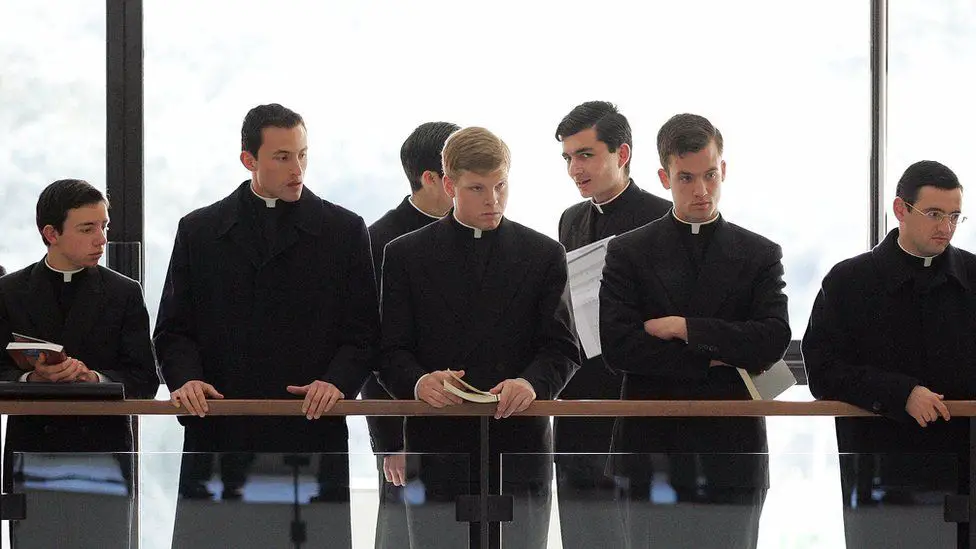Reports of priests sexually abusing minors have been a thorny issue for several decades, especially in the Catholic Church.
Pope Francis reportedly admitted that 2% of Catholic clergy are predators.
The prevalence of predatory cases among priests in different countries is far from ending, even though the Vatican maintains it is dedicated to fighting the despicable vice.
While it is not okay to judge the entire Catholic clergy based on the actions of a few, it is unfortunate that the whole Church’s reputation remains at stake if the cases keep emerging.
So, why are so many priests predators?
The following reasons are potential contributors to predatory behavior among priests:
1. Institution Cover-Ups
When a system is not devoted to upholding transparency and accountability when dealing with perpetrators, it creates a safe space for them to continue misbehaving.
That’s precisely what some dioceses have been doing whenever victims of predatory priests emerge.
The diocese leadership buys the victim’s silence so the accusations don’t go public and damage its reputation.
In the US alone, for example, $3 billion has been paid to victims by the church, a move that has rendered some dioceses bankrupt.
The accused priests, therefore, do not face the law because the church covers up the molestation cases, which encourages such cases to thrive because the church sort of protects priests.
The action against them for abusing minors doesn’t go beyond counseling, transfers, and repentance.
With such a system in place, what would prevent more priests from sexually abusing children?
2. Celibacy
Celibacy is a requirement for those aspiring to become Catholic priests.
The celibacy oath dictates priests cannot marry or engage in sexual relations.
Some priests find it challenging to suppress their sexual urges and resort to molesting underage boys and girls in secrecy.
Unfortunately, some priests manage to molest minors repeatedly before the victims find the courage to speak up.
It is sadder for the victims when no stern action is taken against the perpetrators or when the church tries to buy their silence.
Celibacy has greatly contributed to many priests becoming predators as they find a way to satisfy their sexual urges using minors.
Calls for the Church to revise the celibacy rule and allow the clergy to marry are yet to be considered by the Vatican, and only time will tell if any changes will be implemented to help combat predatory behavior among priests.
Also Read:
What Do Priests Do When They Break Celibacy?
3. Lack of Oversight
The Church lacks proper accountability mechanisms to bring perpetrators to justice.
Such laxity allows more priests to get away with child molestation because no one holds them accountable.
However, some dioceses have implemented mechanisms to deal with molestation and predatory cases from priests serving under them.
Some priests have ended up behind bars where evidence of child molestation is overwhelming.
The church has also excommunicated some perpetrators depending on the gravity of their misdeeds.
If the church commits to overseeing predatory cases among priests and holding them accountable, the instances may reduce drastically because priests who engage in such despicable acts will have nowhere to hide.

4. Enclosed Environments
Priests mainly reside in seminaries or isolated settings that enable them to abuse minors without being detected by the community or outsiders.
In such cases, the community can only learn about the ongoing abuse if the victims speak up.
Without enough evidence, it may be hard for the victims to be believed if they choose to open up, which is why they remain silent for long and continue suffering.
Parents with children who help priests deliver mass, among other church-related activities, should mind their safety and look for signs of abuse.
It is easy to detect a child undergoing sexual abuse, being there is a drastic change in their behavior and how they carry themselves.
5. Stigma
Victims of priestly sexual abuse struggle with shame and the fear of being isolated after reporting what has happened to them.
The stigma that the victims face encourages priests to continue abusing them because they can count on their silence.
The shame and stigma are so loud that victims would rather endure several abuse encounters than come out to report the perpetrators.
Instead of being viewed as the victims, sometimes the community may blame them for soiling the priest’s and Church’s image.
When abuse goes unreported due to shame and stigma, it creates a conducive environment for more priests to target underage boys and girls sexually.
Also Read:
Consequences of Sleeping With a Catholic Priest
Priests in Love Stories: Here are Stories of Priests Who Found Themselves Caught up Between Romance and Religion Duty
To Sum Up
There is no doubt that predatory priests exist, but that doesn’t mean all clergy members are perpetrators.
Some respect their celibacy oath and operate with strong ethics in accordance with the Church’s guidelines.
We have also seen priests who couldn’t contain their sexual urges resign so that they can pursue romantic interests and marry, which is a bolder move than exploiting minors sexually.
The Catholic institution is committed to fighting the vice and bringing perpetrators to justice.
Victims are also encouraged to speak out and not succumb to intimidation from the church’s leadership.
The media also plays a significant role in calling out institutions hindering justice for victims.

